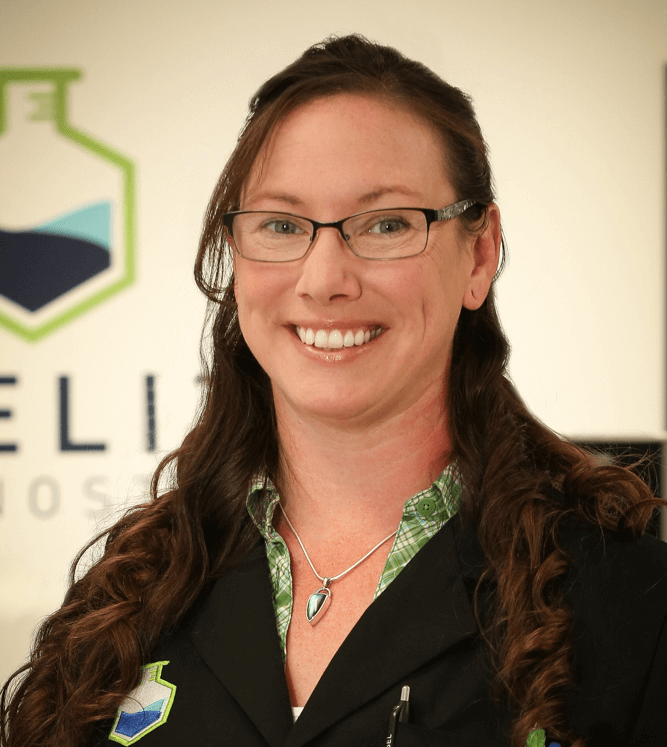
Emily Crane from Fidelity Diagnostics
Women have shaped the cannabis industry as leaders and industry professionals. At Fidelity Diagnostics our team is made up of some astounding women who have helped define what professional cannabis testing means in Montana.

Meet Emily Crane, Fidelity Diagnostics Laboratory Manager and one of the foremost experts in Montana on state-of-the-art cannabis analysis. Learn more about how Emily got into the cannabis industry, her goals, and what she has overcome in our series, Women In Cannabis.
How did you end up working at Fidelity Diagnostics and the cannabis industry after working in wildlife and marine research for years?
At that time, I had roommates in the industry who said I came to mind when these “testing lab folks” gave them a business card. Although I had a full time and a part time job, I called the number on the card and asked if they could use any extra help.
(Follow-Up)
What aspects of wildlife biology and research do you feel have carried over into your career with Fidelity and testing cannabis?
From studying wildlife biology, what comes to mind right now is how many agencies can be instrumental in a rather microscopic, albeit significant topic. Another thing is the importance of human interactions when it comes to the management of anything, not just wildlife . My experience with technical writing has proven helpful in the development of laboratory standard operating procedures and managing a document control system. With a background in analytical chemistry, I gained more understanding of methods for performing safety screens on extensively varying physical mediums of cannabis and cannabis products. My experience with quality control in an ecological setting helps with my meticulousness. Also, 20 years in retail doesn’t hurt with interpersonal relationships.
With your background and your experience do you notice areas in cannabis research that are underdeveloped or need more laboratory inquiry?
Since we follow state requirements for testing, we don’t quite have the capacity to commit resources to more research and development on cannabis. True medicinal properties are studied in a clinical setting, and since it is still a federally illegal substance, the funds going towards cannabis research are limited. This in turn limits the actual research and credibility of those studies.
What initially got you interested in wildlife biology research and lab work?
As a child, I was interested in the work my mother did in civil engineering for the county we lived in. She led construction teams to build migratory fish passage systems alongside major dams on the Columbia River, she worked on bridge maintenance and construction, and hosted Women in Science, Technology, Engineering and Mathematics (STEM) programs throughout her career. She paved a pathway, and taught me that I am able to do anything I want with my talents, knowledge, adaptability and experiences.
With your position as laboratory manager, how have you seen cannabis analysis change from when you started in the cannabis analysis industry?
My professional work in the cannabis industry began before The State of Montana required safety tests performed on medical cannabis, and before it required Marijuana Enforcement Tracking Reporting & Compliance (METRC).
Now, with involvement of the Department of Health and Human Services, the METRC program, and the Department of Revenue, I have seen testing evolve from no state-required testing, to updates in legislation which take into account the traceability and quality control within laboratory testing. Limitations on harvest, production time, and batch sizes have changed how providers create, grow, manage, and prepare their products. One thing that has not changed is the dedication, love and hard work that the people in this industry put into what they do.
Do you feel women are represented equally in the laboratory research community and how does this compare to women’s representation in the cannabis industry?
According to one survey I looked at regarding the representation of women in the cannabis industry, the number of women declined from 2019 to 2021. Although on a smaller scale, the number of women that Fidelity Diagnostics employs is 44% of all employees. I do not see women represented equally in the research community, but I do see a lot of folks working hard to change that.
(Follow-Up)
How do you feel women can be more represented in clinical research and analysis?
Women could be more represented in clinical research and analysis through more empowerment, especially at an early age. Also by promoting higher education in areas of S.T.E.M., and by people continuously working towards gender equality in the workplace, and in educational facilities.
What do you see helping more women enter the fields of clinical research, wildlife research, and analysis?
Some ways of helping to increase the number of women entering fields of research and analysis include resisting implicit bias, and by listening to women and their experiences. Other ways could be to promote active bystander intervention when it comes to sexual harrassment in any workplace. We need workplaces where everyone feels safe.
How has your professional experience working with plants and animals influenced your connection with the woods and recreating in Montana?
It has led me to pay more attention to my own path and those on it, to tread a little bit lighter, pack a little less in my backpack and to breathe a bit deeper.
(Follow-Up)
What do you enjoy most about most about working in Montana?
I enjoy the change in seasons, which comes with a change in mood, activities, and menu.
What has been the most rewarding aspect of working at Fidelity Diagnostics?
Fidelity Diagnostics has a strong sense of family. The professional staff working there are dedicated, fun, and get along (sometimes like family). 😉 We work together well and understand each other, we understand we are all just people.
Learn More About Other Women In Cannabis
FIDI is a company defined by its team, many of which are industry leading woman who have helped to shape the face of our company and the cannabis industry at large. Learn about many of the woman who have helped shape this industry!
